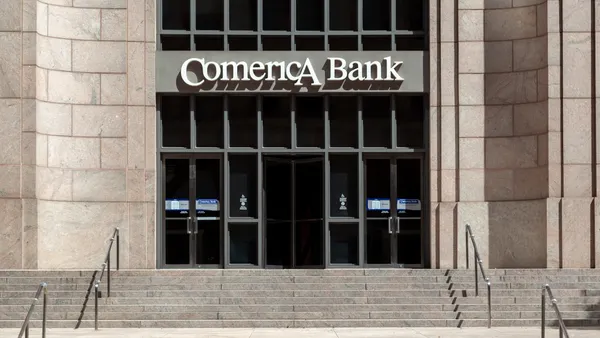The Senate Small Business and Entrepreneurship Committee passed a bill Wednesday that would rein in the Biden administration's efforts to grant fintechs access to a government-backed small-business loan program.
In an 18-1 vote, the panel passed legislation sponsored by Small Business Committee Chairman Sen. Ben Cardin, D-MD, and the panel’s ranking member Sen. Joni Ernst, R-IA, which would limit the number of new nonbank entrants allowed into the Small Business Administration’s 7(a) lending program, and enhance oversight of the program’s nonbank participants.
The legislation, which heads to the full Senate, is in response to the SBA’s decision to end a 40-year moratorium on admitting new nonbank entrants to its 7(a) loan program.
The move, which allows fintechs and other nondepository lenders to apply for a Small Business Lending Company license, has been touted by Vice President Kamala Harris, who said the expansion would increase lending in underserved markets.
Lawmakers and bank trade groups, however, have raised concerns that the new rule will weaken the 7(a) program’s guardrails by allowing less-regulated fintech lenders to issue the government-backed loans.
“We heard loud and clear that allowing an unlimited number of fintechs into SBA’s small-business lending company program, while at the same time loosening underwriting standards, is a recipe for disaster — a disaster for lenders, taxpayers and our small businesses,” Ernst said Wednesday during the committee’s markup session.
Ernst equated the Biden administration’s efforts to revamp the SBA program to mistakes that led to the 2008 mortgage crisis and the student loan crisis — events that she said “buried borrowers in debt they cannot afford.”
“I am proud that the compromise Chairman Cardin and I negotiated restores prudent underwriting, prohibits a massive expansion of the SBLC program and implements critical anti-money laundering and know-your-customer requirements,” she said.
The SBA, for its part, has defended the decision, saying it conducted in-depth assessments to ensure it has the capacity to provide oversight and servicing to its entire portfolio of lenders, including any potential additional SBLCs.
Bank trade groups have also blasted the decision to open the program to new SBLCs, pointing to reports linking fintechs to Paycheck Protection Program fraud.











